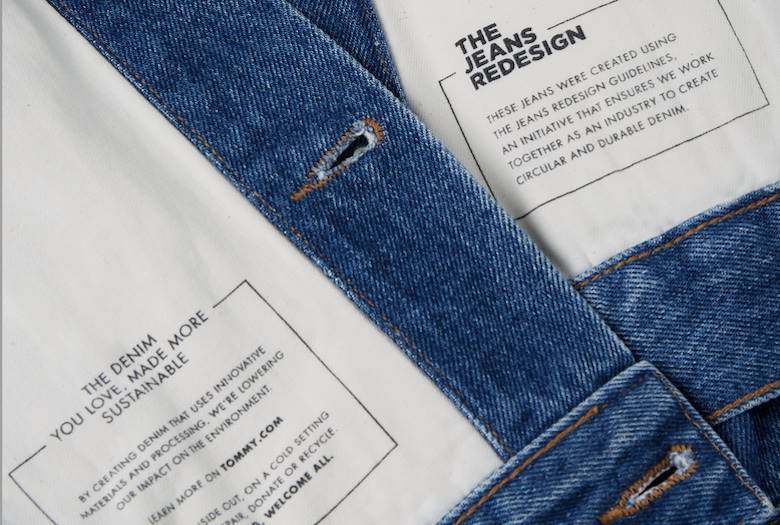EMF publishes collective Jeans Redesign insights from first two years

Ellen MacArthur Foundation (EMF), the UK-based circular economy charity behind the Jeans Redesign initiative, has published The Jeans Redesign: insights from the first two years, a new report targeted at the denim industry.
The document reveals how 80% of the Jeans Redesign’s more than 70 participants have managed to make fabric or jeans that meet the guidelines’ minimum requirements since 2019, following total investment of around $14.5 million across the value chain.
So far, roughly 500,000 pairs of Redesign-approved jeans have made it to market.
Senior analyst for EMF’s Make Fashion Circular team (which is responsible for the Jeans Redesign), Chiara Catgiu, told Inside Denim that the guidelines have been warmly welcomed by the denim industry at large. Ms Catgiu further explained that trims and denim’s stretch factor were two of the main challenges encountered by participants, which meshes well with some of the findings published in the text.
Namely, participants experienced difficulties when trying to identify and source cellulose-based fibres produced in nature-positive ways, the report said, as well as with limiting non-cellulose-based fibres to 2% or less (to enable recyclability), while continuing to produce comfortable, on-trend styles - including stretch-ready jeans.
On trims, the report relayed that finding hardware made without conventional electroplating and reusable zippers which can be removed without loss of fabric during disassembly were two additional sticking points for designers and producers.
Solutions applied by participants included the use of organic cotton and substituting rivets with bar tacks, reinforced stitching or appropriate embroidery techniques, the document stated.
“The collective challenges and solutions identified made it clear where investment and innovation are needed,” Make Fashion Circular lead, Laura Balmond, commented. “The Jeans Redesign demonstrates it is possible to create garments fit for a circular economy and now the concept has been proven, there’s no reason to delay progress.”
EMF concluded by calling for bold and collaborative action on the circular economy from all business involved in the fashion industry, including applying the Jeans Redesign guidelines to more denim garments and “beyond”, such as in the creation of non-denim articles.
The charity also singled out policymakers and suggested that action was needed to establish firmer definitions and parameters relating to regenerative, circularity-minded production and sourcing from governments alongside those in the business world.
It said that policies (such as industry incentives and minimum design standards) are now needed to foster the necessary conditions for a circular economy to flourish at scale.
Find further updates from the Jeans Redesign project inside issue four of Inside Denim here.
Image: Tommy Hilfiger.










